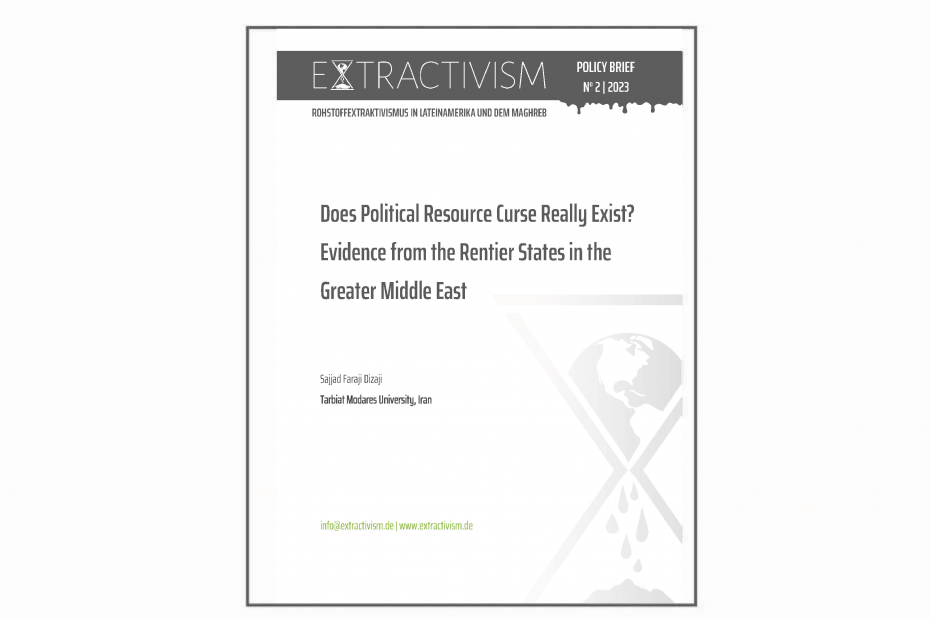This Extractivism Policy Brief shows:
• Oil rents may affect the political regimes through influencing both defense and non-defense expenditures.
• Defense expenditures are considerably influenced by oil rents fluctuations and the quality of political system.
• The rent-seeking by incumbent autocrats may take the form of misappropriation of government revenues away from public services towards patronage.
• Being a ‘political curse’, natural resources could be detrimental to democracy and enhance regime durability.
The Middle East is located in a particular geographical and strategic position. Oil revenues play a very important role in the economic and political system of the oil-producing countries in the Middle East and its neighbouring countries which form the larger region of the greater Middle East. This region is the greatest single reserve of oil by representing more than 55% of world oil reserves. Due to the huge dependency of government budget on oil revenues, they are an important driver of military spending and political system in oil-exporting countries of the Middle East. While on average, the amounts of military burden and the ratio of oil rents to GDP for the countries of the Middle East and North Africa have been considerably higher than those amounts in other regions, most of them have been among the most non-democratic states in the world. Accordingly, a key question arises: Do oil rents stabilize the authoritarian regimes? Could reductions in oil rents prevent the excessive military spending and have an impact on democracy in the greater Middle East?
http://dx.doi.org/doi:10.17170/kobra-202305158024
Download the Extractivism.de Policy Brief 02/2023 (ENGLISH)
Author: Dr. Sajjad Faraji Dizaji, Tarbiat Modares University (Fellow at Extractivism.de)



